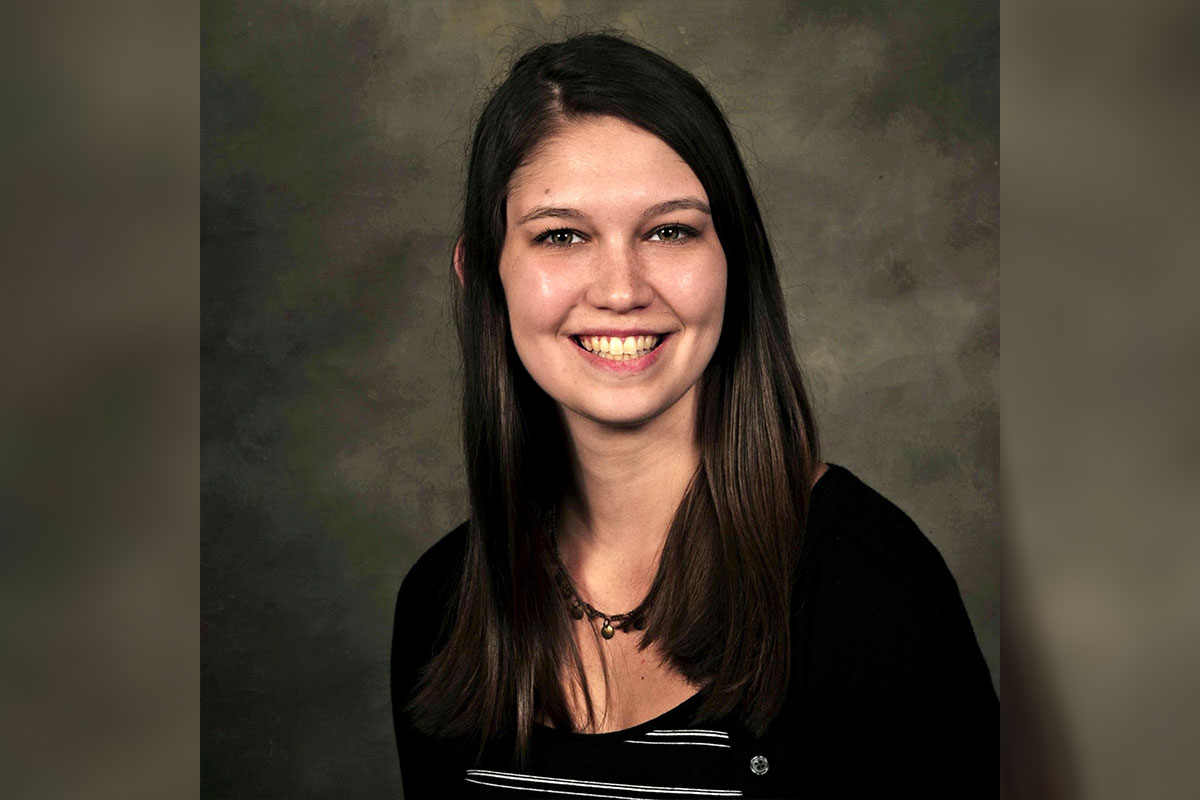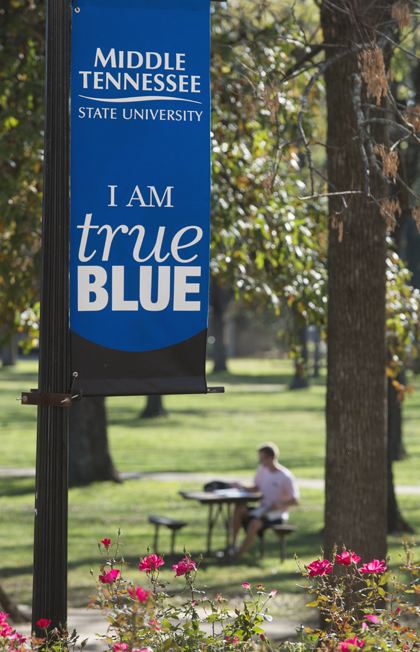
Curriculum and Instruction
Online M.Ed. in Curriculum & Instruction with Digital Teaching focus. Ideal for diverse teaching, business, and museum settings.
Curriculum and Instruction, Digital Teaching and Learning Concentration, M.Ed.
The M.Ed. Curriculum and Instruction with a concentration in Digital Teaching and Learning with Professional Certificate is an online program designed to attract a wide range of students representing varied teaching and learning environments including education, higher education, non-education, business, non-profit, museum, institutional, and professional settings.
Emphasis is placed on best practices for online and remote delivery as well as content creation, design, Internet law, and evaluation of digital learning programs.
News Briefs

High School teacher says program has allowed her to grow in profession
As a high school math teacher, Zoe Gillespie loves how implementing technology in the classroom brings math to life for students allowing them to represent abstract concepts through visual concrete representations, manipulate the graphs of functions, and receive instant feedback on their work. "The Digital Teaching and Learning Certificate has taught me how to better organize my courses through a learning management system to ensure all students receive the instruction and support they need through scaffolding and differentiation," Gillespie said, adding, "My professors and peers have provided me with a multitude of resources and ideas that I've been able to adapt and use with my own students. Being a part of this program has allowed me to grow in my profession and implement more online discussions and tasks with my classes." Gillespie said in the future she would like to be an instructional coach and help teachers improve their practices as they adjust to the increase in online teaching and learning.

Certificate helps student feel more confident in skills
When Emilee Dehmer started the DTOL program she was working as an educator at a museum and had helped them pilot their first distance learning programs. When COVID-19 hit, we were creating more and more online content for teachers and virtual field trips and this program seemed like a perfect match for what she was doing. "Having no prior teaching experience, this program was especially useful in learning more about how to write lesson plans, learning objectives, and curriculum. Beyond that, it helped me learn more about what teachers want for classroom content and added to my list of resources for my team," she said. Since starting the certificate, Dehmer transitioned to a new position as a Digital Specialist at a different museum where she helps a network of 13 sites with digital programming. "While I no longer create content for students directly, the information and resources I have gathered are helping me create training content for our sites on digital storytelling, best practices, and online learning," she said. Dehmer also runs a Museum Consulting agency, with her specialty being in digital content and education. "This certificate has helped me feel more confident when talking to museums and gives them more confidence in me with my credentials. The DTOL certificate has already been extremely useful in all my jobs, even though I'm not working directly in a classroom setting. The content can be related to many fields of work and the professors are accommodating in making sure you get the most out of the program based on your specific needs and career alignment," she said.
News Briefs
High School teacher says program has allowed her to grow in profession

As a high school math teacher, Zoe Gillespie loves how implementing technology in the classroom brings math to life for students allowing them to represent abstract concepts through visual concrete representations, manipulate the graphs of functions, and receive instant feedback on their work. "The Digital Teaching and Learning Certificate has taught me how to better organize my courses through a learning management system to ensure all students receive the instruction and support they need through scaffolding and differentiation," Gillespie said, adding, "My professors and peers have provided me with a multitude of resources and ideas that I've been able to adapt and use with my own students. Being a part of this program has allowed me to grow in my profession and implement more online discussions and tasks with my classes." Gillespie said in the future she would like to be an instructional coach and help teachers improve their practices as they adjust to the increase in online teaching and learning.
Certificate helps student feel more confident in skills

When Emilee Dehmer started the DTOL program she was working as an educator at a museum and had helped them pilot their first distance learning programs. When COVID-19 hit, we were creating more and more online content for teachers and virtual field trips and this program seemed like a perfect match for what she was doing. "Having no prior teaching experience, this program was especially useful in learning more about how to write lesson plans, learning objectives, and curriculum. Beyond that, it helped me learn more about what teachers want for classroom content and added to my list of resources for my team," she said. Since starting the certificate, Dehmer transitioned to a new position as a Digital Specialist at a different museum where she helps a network of 13 sites with digital programming. "While I no longer create content for students directly, the information and resources I have gathered are helping me create training content for our sites on digital storytelling, best practices, and online learning," she said. Dehmer also runs a Museum Consulting agency, with her specialty being in digital content and education. "This certificate has helped me feel more confident when talking to museums and gives them more confidence in me with my credentials. The DTOL certificate has already been extremely useful in all my jobs, even though I'm not working directly in a classroom setting. The content can be related to many fields of work and the professors are accommodating in making sure you get the most out of the program based on your specific needs and career alignment," she said.
Related Media

Graduates from the Digital Teaching and Learning concentration may be employed in a variety of positions. Examples include, but are not limited to:
- Business Training Developer
- Classroom Teacher
- Course Developer
- Curriculum Developer
- Digital Education Coordinator in the P-16 through Adult Setting
- Digital Education Developer in the P-16 through Adult Setting
- Digital Learning Evaluator
- Digital Learning Specialist
- Digital Project Manager
- Instructional Leader
- Museum Education Developer
- Non-profit Digital Workshop Designer
- Online Curriculum Designer
- Online Instructor in Education-based and Non-education based Settings
- Online Instructor in Higher Education
- Professional Development Coordinator
- Professional Development Designer
- Technology Coach



- Association for the Advancement in Computer Education
- Association for Educational Communications and Technology
- Consortium for School Networking
- Digital Promise
- Educause
- eLearning Industry
- International Society for Technology in Education
- International Technology and Engineering Educators
- Inside Higher Ed
- Learning Forward
- National Communication Association
- OER Commons
- Tech Journal
- Technologies
- TEDEd
- WSJ Tech
Related Links

CONTACT US

Please fill in the form below and we will contact you very soon










